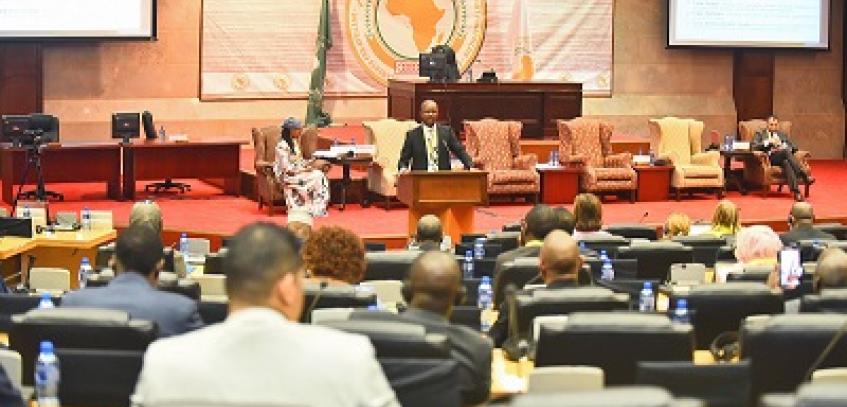The world's largest free trade area, the African Continental Free Trade Area (AfCFTA) has made significant progress on its implementation, key being the creation of the African Trade Observatory giving trade information on the continent, Pan-African Parliamentarians have heard.
A two-day workshop is underway on the sidelines of the Sixth Pan-African Parliament (PAP) Second Ordinary Session being held under the African Union Theme of the Year for 2023, “The Year of AfCFTA: Accelerating the Implementation of the African Continental Free Trade Area” in Midrand, South Africa and will run up to 2 June 2023.
Realising the huge trade information gap existing on the continent, the AfCFTA sought to address this through the creation of a platform that gives out information for free. "We went back to the framework when we observed there was inadequate information on trade. We closely looked at one of the 7 clusters contained herein and concentrated on the one relating to trade information and realised there was a huge gap and we needed to fill it by creating the African Trade Observatory which gives trade information for free. This basically gives a narrative on what needs to be done," said Mr Brian Mureverwi, Senior Trade Advisor, African Union Commission Department for Economic Development, Trade Industry and Mining.
The platform provides data pertaining to market sizes, market shares and business partners in various sectors. Applicable tariffs are also readily available on the platform. Mr Mureverwi added that the continent should also move towards promotion of Intra-African Investment: "It is high time we started looking at investing amongst ourselves. How do we facilitate investment within our continent because nothing significant is coming our way from the investors we were used to."
Speaking at the same platform, Mr Mohamed Ali, Director Trade in Goods and Competition, AfCFTA Secretariat, commended the PAP for its support for the implementation of the AfCFTA and said one of the success stories of the AfCFTA is the creation of Pan-African Payment and Settlement System (PAPSS). "We are losing a lot of hard currency while trading amongst ourselves. We are setting up a PAPSS to allow traders to trade in local currencies meaning cheaper access to inputs and access to African products will be much easier.
Currently, when one has to pay for goods, the payment has to go through a third country outside Africa before the money comes back to Africa and this has proven expensive hence our move to establish the PAPSS," said Mr Mohamed Ali.
Of note also, is the initiative to build capacities of Women in Processing. The capacity building is to ensure the Women in Processing are capable of producing quality goods and also appreciate various existing instruments and protocols.








